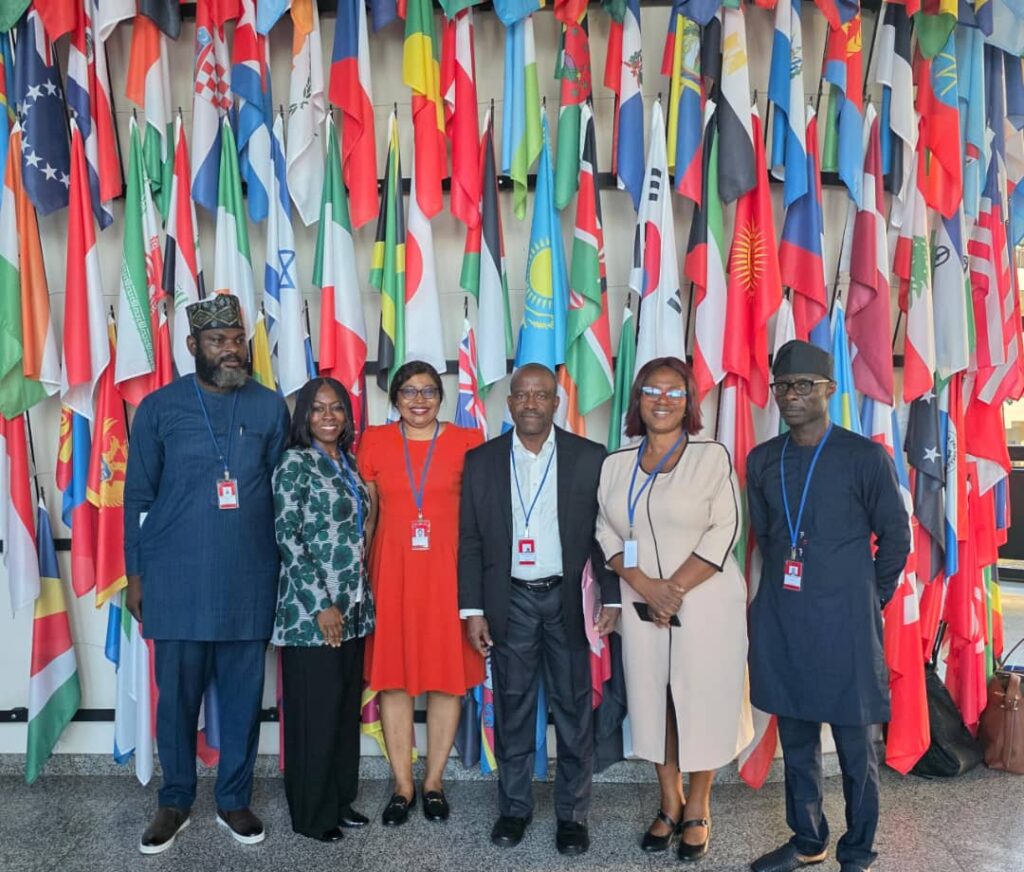By: Goodluck E. Adubazi, Abuja.
Nigeria has restated its commitment to the recovery of looted assets and the fight against corruption in compliance with the United Nations Convention Against Corruption (UNCAC).
The country’s position was made known by the Nigerian delegation to the 16th Session of the Implementation Review Group (IRG) and the 19th Meeting of the Open-Ended Intergovernmental Working Group on Asset Recovery in Vienna on Friday.
The Nigerian delegation to the Vienna meeting included: the Head of the Technical Unit on Governance and Anti-Corruption Reforms (TUGAR), Mrs. Jane Adidu-Onwumere; the Head of Anti-Graft and Law Enforcement Agencies Liaison/AML-CFT/IFF and Proceeds of Crime Country Expert of the Federal Inland Revenue Service (FIRS), Alhaji Idris Muhammadu Abdullahi; a Director in the Federal Ministry of Justice, Mrs. Bosede Oguntuberu; as well as representatives of the Nigerian Financial Intelligence Unit (NFIU), the Economic and Financial Crimes Commission (EFCC), and the country’s Permanent Mission in Vienna.
Delivering Nigeria’s position at the meeting, Adidu-Onwumere expressed the country’s unwavering commitment to the full implementation of the UNCAC conventions, particularly in the areas of asset recovery, transparency, and international cooperation.
“The Federal Republic of Nigeria stands resolute and remains committed in its fight against corruption. We will continue to pursue asset recovery with transparency and expand global cooperation to curb corruption,” she stated.
The TUGAR boss affirmed that Nigeria had made significant progress in tackling corruption following the completion of its implementation review in the first and second cycles.
According to her, the country has adopted a comprehensive remediation plan to address identified gaps in the review findings.
She explained: “Additionally, we have taken bold steps in consolidating anti-corruption legislation across relevant sectors. We have also developed a robust framework for periodic evaluation of the efficiency and effectiveness of anti-corruption measures and policies at the national and sub-national levels.
“This evaluation framework involves a systematic review of existing measures, identification of gaps, and formulation of targeted strategies to strengthen corruption prevention efforts. Our prevention strategy continues to emphasize tackling corruption from the root through our conduct of corruption risk assessments.”
As part of this strategic corruption-prevention tool, Adidu-Onwumere disclosed that a scoping and mapping of the nation’s ethics infrastructure had been conducted, alongside a review of codes of conduct for public officers.
She added that the government, last month, launched an interactive virtual learning tool to enhance awareness, promote preventive compliance, and serve as a resource for oversight institutions and citizens.
On asset recovery, she highlighted Nigeria’s recent legal reforms, stressing that the country had taken bold steps in consolidating anti-corruption legislation across key sectors, including the enactment of the 2025 tax reform laws, to enhance transparency, accountability, and effective systems for asset recovery and financial integrity.
She said: “The enactment and implementation of several laws, including the Proceeds of Crime (Recovery and Management) Act, 2022, the Nigerian Tax Act 2025, and other new tax reform laws set to take effect in 2026, have provided a solid legal foundation for transparent, accountable, and effective systems for asset recovery and financial integrity. These laws strengthen the legal basis for beneficial ownership information for use in tax investigations.
“To support the effectiveness and implementation of these laws, Nigeria has developed a standardized and automated asset forfeiture management system, ensuring strict adherence to due process, transparency, and efficiency in asset forfeiture and management processes. This includes the development of a centralized national database for recovered assets and the Proceeds of Crime (Standardized Automated Asset Forfeiture Management System) Regulations 2024.”
Adidu-Onwumere further revealed that Nigeria had expanded its international cooperation efforts across various jurisdictions, working systematically to trace and identify assets linked to corruption-related activities.

